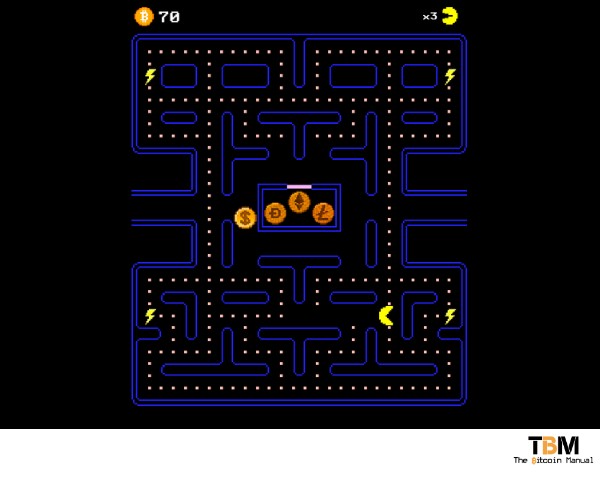
Beloved video game classics are getting a blockchain makeover as enthusiasts bring titles like Pac-Man, Tetris, and Doom to cryptocurrency networks, opening new possibilities for how games can be preserved and played.
Through an innovation called the Ordinals protocol, these retro favorites can now run directly on the Bitcoin and Dogecoin blockchains. The technology works by inscribing game data onto tiny units of cryptocurrency called satoshis, which represent one hundred millionth of a Bitcoin.
What makes this approach unique is that the entire game files are stored within the blockchain itself, rather than just referring to content hosted elsewhere. This means the games become a permanent part of the cryptocurrency network, accessible as long as the blockchain exists.
Dogecoin's blockchain has proven especially suitable for gaming, with enough storage capacity to host more substantial titles like the complete shareware version of Doom. Players can access these blockchain-based games through regular web browsers, making the experience surprisingly similar to playing traditional online games.
The movement represents more than just a novel way to play classic titles. By inscribing games directly into blockchain networks, developers are creating an immutable archive of gaming history. The Bitcoin Pizza collection demonstrates this preservation approach, having successfully stored both Super Nintendo and Nintendo 64 emulators on the Bitcoin blockchain.
New games designed specifically for blockchain are also emerging. Super Doginals leads this trend as an arcade-style fighting game built from the ground up for the Dogecoin network. This suggests blockchain gaming could evolve beyond just preserving classics to fostering entirely new forms of interactive entertainment.
The integration of gaming with blockchain technology marks an innovative shift in how games can be distributed and maintained. As these developments continue, they may reshape our understanding of game ownership and preservation in the digital age.